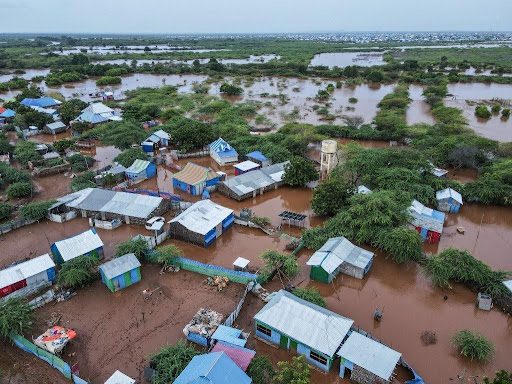

As 2024 unfolds, Africa continues to establish itself as a dynamic and evolving investment hub. With its vast natural resources, young and growing population, and increasingly diversified economies, the continent offers abundant opportunities for investors who are prepared to navigate its complexities. Despite global economic turbulence and political uncertainty, Africa’s market is demonstrating resilience, offering significant long-term potential. The RMB “Where to Invest in Africa” report presents a timely and comprehensive guide, illuminating the most promising investment destinations across the continent.
Africa’s economic landscape is characterized by both impressive growth and considerable challenges. The continent’s population, currently 1.4 billion, is expected to reach 2.5 billion by 2050, making it the fastest-growing population in the world. This demographic shift, combined with an expanding middle class and rising urbanization, is poised to drive consumption and demand for goods and services. With a median age of just 19, Africa’s youthful population stands in stark contrast to other regions like Europe, where the average age is 43. This demographic profile presents substantial investment opportunities, particularly in sectors catering to the needs of a growing and urbanizing population, including education, healthcare, infrastructure, and technology.
The RMB “Where to Invest in Africa” report employs a sophisticated methodology to evaluate the investment attractiveness of 31 African countries, which together account for 92% of Africa’s GDP. The report aggregates data from leading global institutions like the World Bank, the IMF, and the African Development Bank, offering a data-driven approach to guide investment decisions. Countries are assessed on four key pillars: economic performance and potential, market accessibility and innovation, economic stability and investment climate, and social and human development. By using Z-scores, the report provides an objective comparison, making it easier for investors to evaluate the relative attractiveness of different markets.
Africa’s economic potential is as varied as the continent itself. Countries like Egypt, South Africa, and Kenya are leading the charge with strong economic performance. These nations boast well-established industries, growing middle classes, and are becoming key players in sectors like technology, finance, and manufacturing. However, nations such as Zimbabwe and Angola are grappling with challenges like political instability, corruption, and underdeveloped infrastructure, factors that could deter investment.
Natural resources remain a cornerstone of Africa’s economic landscape. The continent is home to 30% of the world’s critical mineral reserves, including cobalt, copper, gold, and diamonds. Africa also holds two-thirds of the world’s remaining uncultivated arable land. Countries like the Democratic Republic of Congo (DRC), Zambia, and Tanzania are prominent players in the mining sector, with the DRC alone accounting for 70% of global cobalt production. However, Africa’s mineral wealth is not without its challenges. The “resource curse,” where resource-rich nations struggle with governance issues and corruption, remains a concern. Investors should prioritize countries that not only possess vast natural resources but also have robust governance frameworks and transparent resource management policies. The global push for sustainable mining practices also presents an opportunity for investors looking to engage in environmentally responsible sectors.
Agriculture represents another critical investment sector. Despite possessing vast arable land, Africa remains a net importer of food, creating substantial opportunities in agribusiness. The continent’s growing population and urbanization are increasing demand for food products, making agriculture a sector ripe for development. Countries like Nigeria, Kenya, and Ethiopia are leading efforts to modernize agriculture through large-scale farming, food processing, and agritech innovation. Investment in agricultural infrastructure—such as irrigation systems, storage facilities, and supply chains—is also essential for ensuring food security and improving agricultural productivity.
The technology sector is experiencing rapid growth across Africa, fueled by the continent’s tech-savvy, youthful population. Countries like Kenya, Nigeria, and South Africa are emerging as leaders in fintech, e-commerce, and mobile technology. Kenya’s M-Pesa, a mobile money platform, has revolutionized financial services in East Africa, serving as a model for how technology can bridge gaps in financial inclusion. As mobile phone penetration increases, so does the demand for digital services. Investment opportunities abound in fintech, e-commerce, and tech infrastructure, as well as digital skills development programs. The fintech sector, in particular, is driving financial inclusion across the continent, creating opportunities for investors to tap into a rapidly expanding market.
However, Africa’s investment potential is not without its challenges. The continent’s infrastructure deficit remains a significant hurdle to economic growth. The RMB report highlights an annual infrastructure investment gap of $100 billion, with urgent needs in transportation, energy, and urban development. Roads are the primary mode of transport in Africa, yet only 40% of rural Africans have access to all-season roads, and just 53% of the continent’s roads are paved. Similarly, power generation and distribution remain underdeveloped, with only about 45% of sub-Saharan Africans having access to reliable electricity. These gaps present significant opportunities for investors in infrastructure development, particularly in the transportation, energy, and housing sectors.
The African Continental Free Trade Area (AfCFTA) is expected to transform intra-Africa trade and investment. By reducing tariffs and trade barriers, AfCFTA aims to create a single market for goods and services, offering new opportunities for investors seeking to access a larger and more integrated market. The trade bloc is expected to increase intra-Africa trade by 52% by 2025, further enhancing market access and driving economic growth. Countries with strong infrastructure and manufacturing capabilities will benefit the most from AfCFTA, serving as regional hubs for production and distribution.
As global investors increasingly prioritize environmental, social, and governance (ESG) factors, Africa is embracing sustainability as a key component of its growth. Many African countries are focusing on renewable energy, sustainable agriculture, and eco-tourism as drivers of economic development. Africa has vast potential in renewable energy, particularly in solar, wind, and hydropower, which could help meet both local and global energy needs while reducing carbon emissions. For investors, incorporating ESG criteria into investment strategies is becoming increasingly important. The demand for sustainable investments continues to grow, and African nations like Kenya, South Africa, and Morocco are leading the way in renewable energy. At the same time, eco-tourism is gaining traction in countries like Tanzania and Rwanda, where natural beauty and wildlife offer immense tourism potential.
Investing in Africa in 2024 requires a strategic, well-informed approach. While the continent offers abundant opportunities, navigating its complexities requires careful consideration of each market’s unique risks and rewards. The RMB “Where to Invest in Africa” report provides a valuable resource, offering deep insights into Africa’s diverse markets. Investors should focus on sectors such as natural resources, agriculture, technology, and infrastructure while considering the potential challenges posed by political instability, governance issues, and infrastructure deficits. By leveraging data and taking a strategic approach, investors can unlock Africa’s full potential, contributing to sustainable growth while securing long-term success in one of the world’s most exciting regions.


